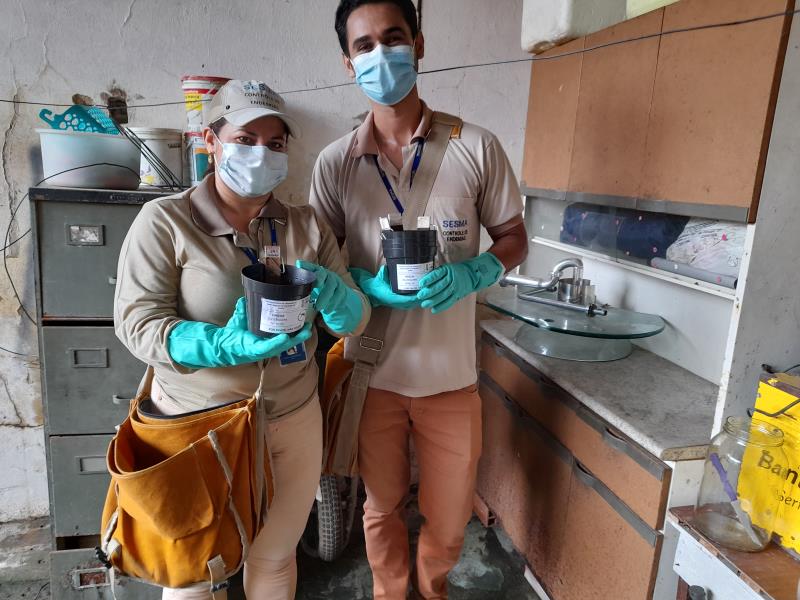This Tuesday, April 20, endemic workers from the Municipal Health Secretariat (SISMA) returned to homes where traps were set to catch the mosquitoes that transmit dengue fever in Belém. They are called devices Overtramps, At strategic points for 774 homes in the capital of Pará. Upon this return, clients removed traps and collected eucatex canes where females from Aedes aegypti Lay eggs.
The material collected will be analyzed by the Entomology Laboratory. According to the results of the analysis, strategies for controlling dengue fever will be identified in the municipality. In this analysis it will be possible to find out how many eggs are in Overtramps And how it is spread in the area in which it was collected. Thus, measures will be taken to prevent the spread of mosquitoes.
“In the lab, they will check the indicator of positivity, that is, the number of oocytes that are positive for Aedes aegypti And the population density index, which will show the number of mosquitoes in homes, “explains the coordinator of the SISMA program to combat dengue fever, Tado Moraes.
Action – The traps were set up on April 14 and stayed for a week indoors. “Water and beer yeast are placed in a black bowl to attract a female mosquito that lays 50 to 100 eggs a day. For a week, we watch the traps,” explains Tado Moraes. at Overtramps Simulate the ideal environment to procreate Aedes aegypti.
The procedure will be carried out every two months, to check where there is a high incidence of the disease in the city.
Fighting Dengue fever is an ancient disease familiar to all Brazilians. During the rainy season, there is an increase in the incidence of the disease. According to Sesma, 154 cases of dengue fever were recorded in the municipality of Belem from January to April 14, and in the same period last year, the record number was 133 cases. There was a growth of 16.66% compared to 2020.
a Aedes aegypti It is also a transmitter for Zika and Chikungunya. SISMA data indicate that two Chikungunya cases were recorded in Belem from January to date, and in the same period in 2020, there were 16 cases, which is a decrease of 12.5%. Regarding the Zika virus, no case has been confirmed in the municipality for a period of two years.
The transmission of these diseases occurs through the bite of the female Aedes aegypti. Therefore, to combat it, it is necessary to eliminate mosquitoes.
Housewife Luclyn Miranda has lived in Guama for 20 years. Her home was one of the homes chosen to receive Ovitrampa. Lucilene understands the need for the service that dealerships provide. “I know they are doing important work for the population. After this research, they will look at ways to eradicate mosquitoes. So, I feel more comfortable being here.”


“Wannabe internet buff. Future teen idol. Hardcore zombie guru. Gamer. Avid creator. Entrepreneur. Bacon ninja.”

